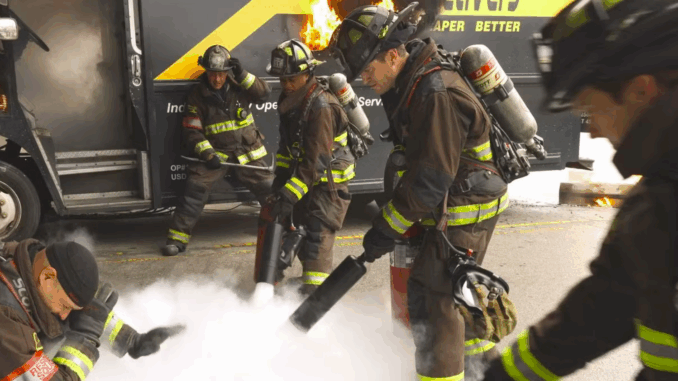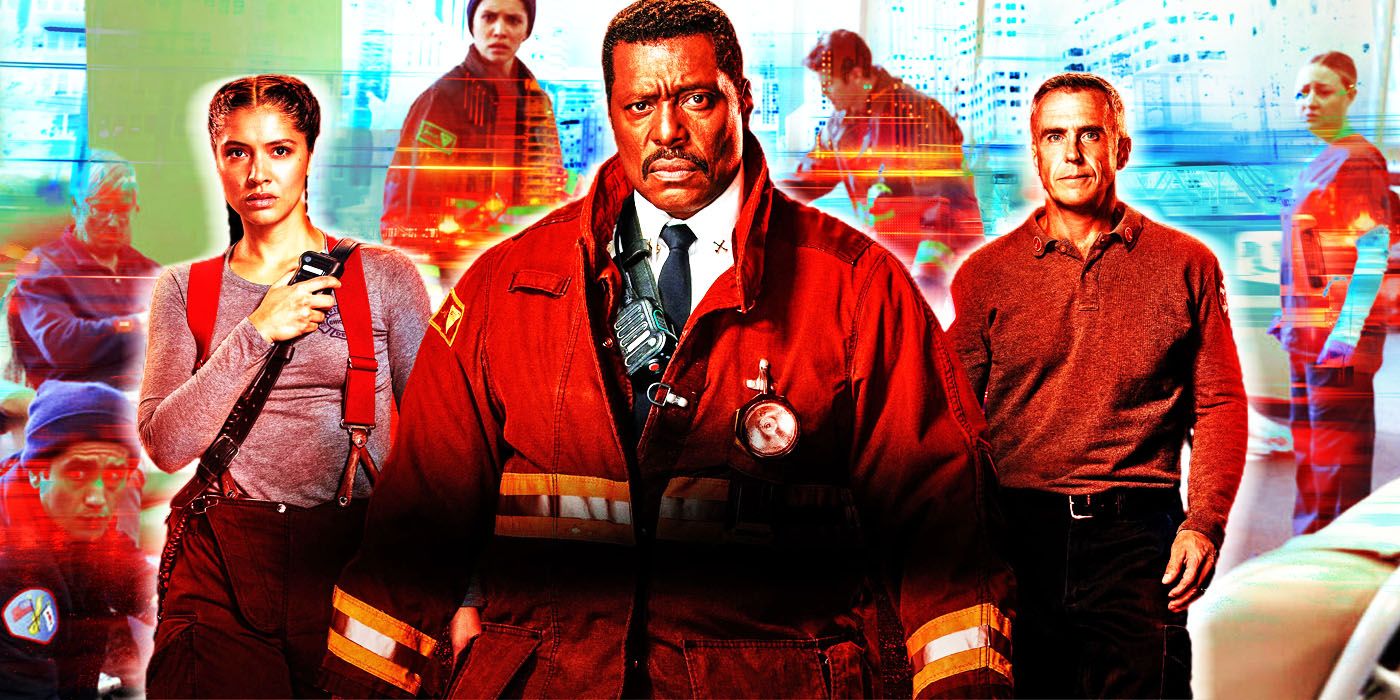
Firehouse 51 has long stood as the emotional core of Chicago Fire, a place where loyalty runs deep, and family goes beyond blood. But in Season 12, the brotherhood that has defined the series since day one faced some of its most serious internal tests yet. With shifting dynamics, surprise exits, and the emotional aftermath of relentless trauma, Chicago Fire used its twelfth season not just to entertain—but to challenge the very foundation of what it means to belong.
The Season Begins with Uncertainty
From the very first episode, Season 12 set a different tone. With familiar faces missing and new tensions brewing, it was clear that Firehouse 51 was entering a period of transformation. Blake Gallo’s departure, coupled with Severide’s ongoing absence from rescue squad duties, left both emotional and operational gaps.
The show no longer relied on the comfort of old routines. Instead, it leaned into unpredictability—and with that came vulnerability. The team wasn’t just battling blazes. They were fighting to keep their sense of purpose, and each other, intact.
Sam Carver’s Internal Storm
One of the most compelling arcs of the season belonged to Sam Carver. Since his arrival, he’s had to claw his way into the tightly-knit world of 51. But in Season 12, we saw a more fractured, emotional version of the firefighter as he navigated personal trauma and growing feelings for Violet Mikami.
His decision to request a transfer to Denver wasn’t just a plot device. It was a character unraveling—torn between what he wants and what he believes he deserves. Jake Lockett’s performance captured the raw conflict within Carver: a man trying to outrun his pain but caught in the gravitational pull of loyalty, love, and duty.
His departure announcement shook the firehouse. But more than that, it forced others—especially Violet—to confront how much they rely on each other, even when they don’t say it out loud.
Violet Mikami: A Quiet Anchor Amid the Storm
As others struggled, Violet emerged as a surprising emotional anchor. Still reeling from the death of Evan Hawkins, she’s been forced to grow quickly, balancing grief with responsibility and the complicated nature of her relationship with Carver.
Season 12 saw her evolve from a secondary character into one of the show’s beating hearts. Her scenes with Carver—tense, tender, unpredictable—offered some of the season’s most nuanced emotional moments. And through it all, she reminded fans why Chicago Fire isn’t just about the action. It’s about the aftermath.
Severide’s Absence and Boden’s Dilemma

Perhaps no storyline better symbolizes the “cracks in the foundation” theme of Season 12 than Severide’s continued off-screen struggle with trust and loyalty.
With Kelly Severide spending much of the season away on special assignments, the void he left was impossible to ignore. Firehouse 51 runs on unspoken bonds, and his absence tested those in new ways. Boden, always the wise and steady chief, found himself having to defend Severide’s choices while managing the frustration of a team desperate for cohesion.
Eamonn Walker delivered some of his best work as Boden this season—measured, restrained, yet full of layered emotion. The chief’s balancing act between loyalty to Severide and the needs of the team reflected the series’ broader theme: Can loyalty withstand distance, change, and doubt?
Brotherhood Under Fire
The firefighting calls this season were some of the most intense yet, but the emotional danger often came from within. Internal conflict simmered between veterans and new recruits. Miscommunication led to operational mistakes. And, for the first time in a long while, the sense of unbreakable trust at Firehouse 51 felt—fragile.
But in true Chicago Fire fashion, the fractures didn’t break the house. They simply exposed where repairs were needed.
One particularly memorable episode featured a call gone wrong, where missteps in the field put a firefighter at risk. The debrief wasn’t about blame—it was about accountability. That scene became a metaphor for the season itself: progress requires hard conversations.
Saying Goodbye to Familiar Faces
Season 12 was marked by goodbyes. Gallo’s exit was abrupt, and while fans had mixed reactions, it echoed the unpredictability of real life. People leave. People change. And in the high-stakes world of Chicago Fire, no one is guaranteed tomorrow.
But it wasn’t all loss. Matt Casey’s return brought a spark of hope—and a reminder of the strength of old ties. His reappearance underscored the central message of Season 12: no matter how far you go, Firehouse 51 is always home.
What Season 12 Taught Us About Brotherhood
This season didn’t wrap things up in a neat bow. It pulled at old wounds, made room for new ones, and reminded viewers that brotherhood isn’t a fixed state. It’s a living, breathing thing—earned and re-earned every single day.
Chicago Fire proved that unity isn’t about perfection. It’s about showing up, even when things are messy. Especially then.
As we head into Season 13, the firehouse is not the same—but maybe that’s the point. Brotherhood isn’t defined by who stays. It’s defined by who keeps fighting to stay connected.
And at Firehouse 51, that fight is far from over.